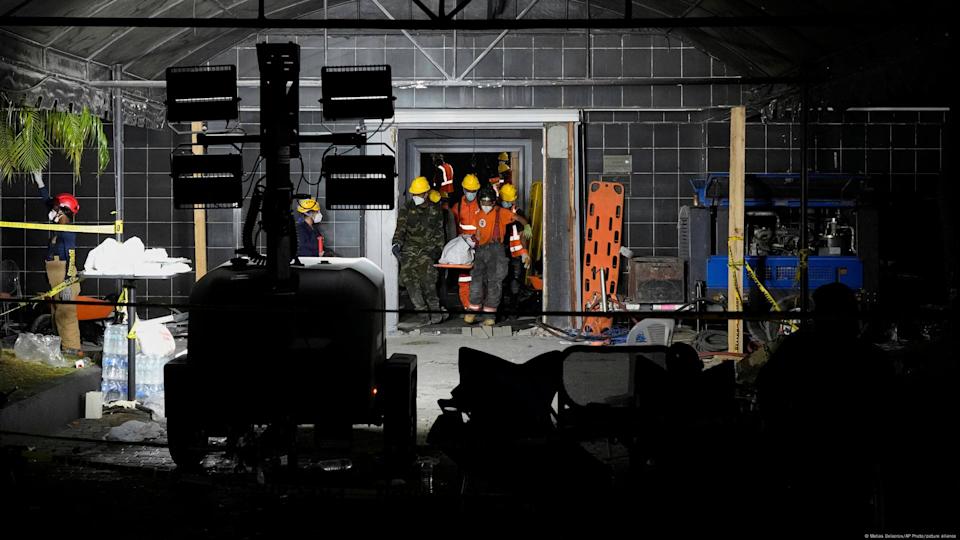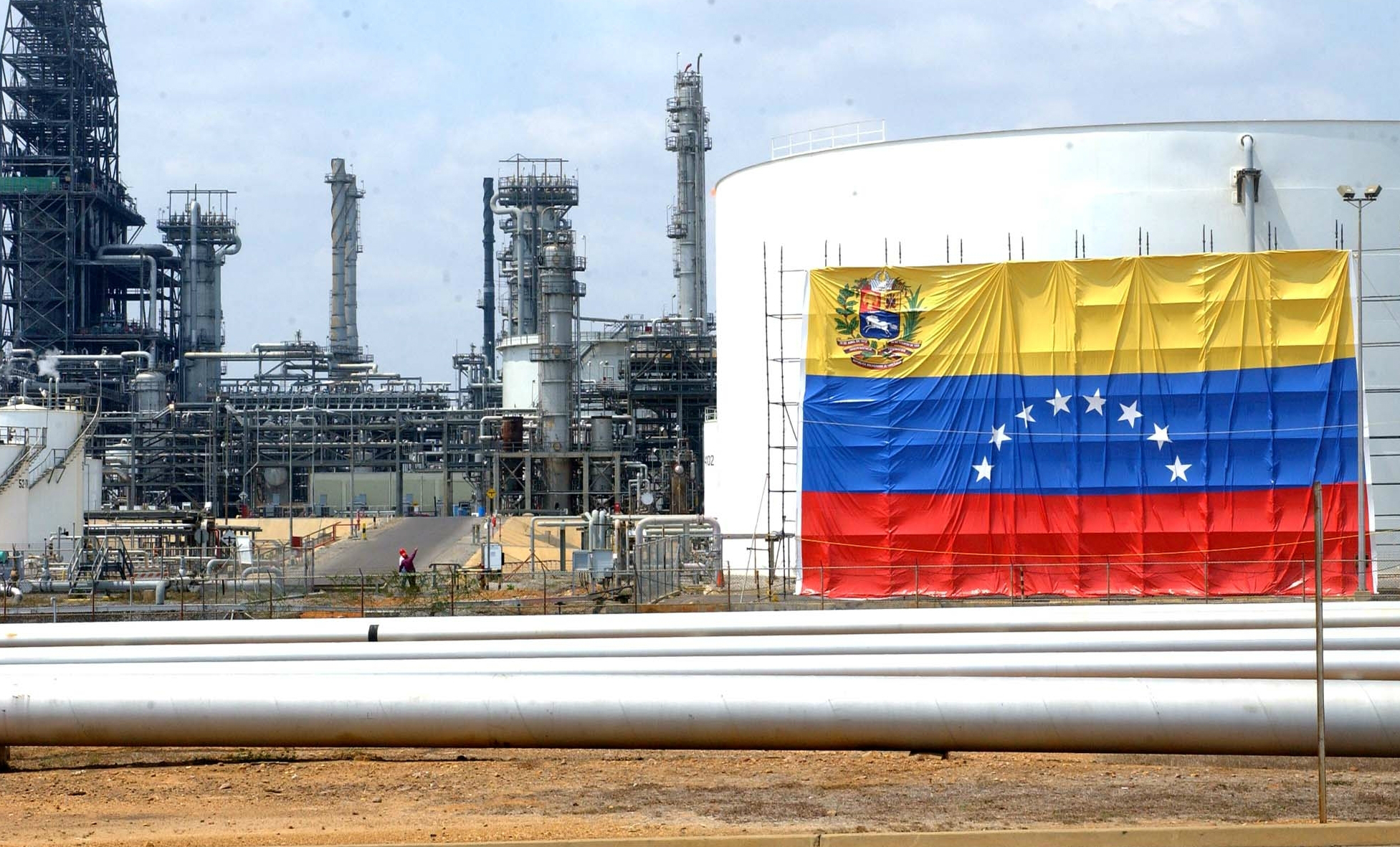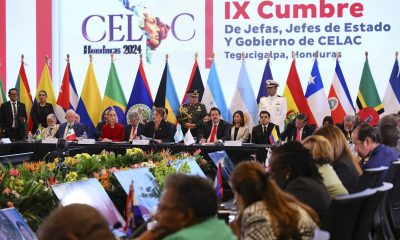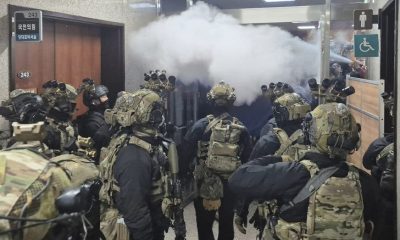International
WHO launches call to speed up genomics tech development

AFP
Countries should step up their work on genomic technologies to combat diseases, and share that technology more quickly with developing nations, a new WHO report argued Tuesday.
Genomics — the study of DNA sequences and gene functions — could make a vast contribution to improving human health, said the World Health Organization’s Science Council.
“Genomic technologies are driving some of the most ground-breaking research happening today,” said WHO chief scientist Soumya Swaminathan.
“The benefits of these tools will not be fully realised unless they are deployed worldwide.”
The report included a series of recommendations designed to help make that happen.
Genomics is the study of the total or part of the genetic sequence information of organisms and attempts to understand the structure and function of those sequences.
Its supporters hope it will provide efficient, cost-effective and robust means of preventing, diagnosing and treating major diseases.
– ‘Enormous contribution’ –
The Science Council was set up in April last year to advise WHO chief Tedros Adhanom Ghebreyesus on advances in science and technology that could directly improve global health.
Made up of nine leading scientists and public health experts, it is chaired by Professor Harold Varmus, a 1989 Nobel laureate and a former director of the US National Institutes of Health.
The council chose to focus on genomics because of its successes in confronting infectious diseases, cancers, and other chronic diseases.
Genomics uses biochemistry, genetics, and molecular biology to understand and use biological information in DNA and RNA, with benefits for medicine and public health.
“Genomics can make enormous contributions to human health, from surveying populations for infectious agents, such as the virus that causes Covid-19, to predicting and treating a wide variety of diseases, such as cancers and developmental disorders,” said Varmus.
Genome sequencing data became the basis of global monitoring of both how the SARS-CoV-2 virus was evolving, and the emergence of new Covid variants. It was also used in the development of vaccines.
– Bringing down costs –
It is not ethically or scientifically justifiable for less well-resourced countries to gain access to such technologies long after wealthy nations do, the council’s report argued.
It advocated expanded access to genomic technologies — particularly outside the richest countries — by addressing shortfalls in financing, laboratory infrastructure, materials, and highly trained personnel.
The costs of establishing and expanding genomic technologies were declining, said the report — but they could be brought down further.
Tiered pricing, shared intellectual property rights and investing profits from one area into another could all help make genomic technologies more affordable, it argued.
Ministries should collaborate with scientific organisations on using genomics, building technical capacity and pooling resources with others, the report added.
But it also said that oversight and adherence to international standards was critical in promoting the ethical and legal use of information obtained with genomic methods.
International
Two fans killed in gate collapse outside Chile’s Estadio Monumental

Two people lost their lives near the Estadio Monumental in Santiago, Chile, following a chaotic incident that occurred before the Copa Libertadores match between Colo Colo and Brazil’s Fortaleza on April 10. According to the Public Prosecutor’s Office, the victims were crushed after a fence on the stadium perimeter collapsed, though authorities are investigating whether a police armored vehicle may have played a role.
It was a black Thursday at Chile’s Estadio Monumental. Two local fans died outside the stadium after a yet-unclarified incident caused a metal gate to fall on them, leading to fatal asphyxiation.
Local media reports indicate that a group of fans attempted to force their way into the stadium before kickoff. In response, local police allegedly deployed armored vehicles to block the breach.
Preliminary reports cited by local newspapers and news agencies like EFE identify the victims as two young individuals—one 18 years old and the other just 13.
International
Dominican Republic mourns over 200 dead in Jet Set nightclub collapse

On Thursday, April 10, 2025, the Dominican Republic began mourning the more than 200 victims of the collapse of Jet Set nightclub in Santo Domingo, although many families are still desperately waiting for the remains of their loved ones.
The roof of the Jet Set club collapsed in the early hours of Tuesday, April 8, during a live performance by iconic merengue singer Rubby Pérez.
Rescue workers were completing the recovery of human remains from beneath the rubble of corrugated metal and steel beams, as search efforts ended with no further hope of finding survivors.
Around the morgue, the atmosphere was one of grief, anguish, and despair. A list of the deceased was posted on a canvas covering a nearby tent, where crowds gathered in distress. Health Minister Víctor Atallah stated that forensic teams are working at full capacity and urged patience. “No one will go unidentified, and no one will be left without answers,” he promised. “We will turn over every last stone if we have to.”
The tragic collapse also claimed the lives of several foreigners, including a significant number of Venezuelan nationals who were present at the club, according to local newspaper Listín Diario. The outlet reported the official death toll at 221, which included one Haitian, two French nationals, one Italian, and one Kenyan.
Meanwhile, relatives, friends, and fans of Rubby Pérez released white balloons outside the National Theater shortly before the hearse departed with the remains of the beloved singer, known for hits like “Enamorado de ella” and “Buscando tus besos.” Draped over his coffin were both the Dominican and Venezuelan flags, the latter symbolizing the country where his fame took off.
International
Venezuelan oil shipments resume after tariff-induced delays

Many buyers of Venezuelan oil have resumed loading tankers after a week of pauses and delays at the country’s ports, caused by tariffs imposed by President Donald Trump on importers of crude from the OPEC member nation, according to shipping data and documents.
In March, the United States gave Chevron and other foreign partners and clients of Venezuela’s state oil company, PDVSA, until May 27 to gradually wind down operations and cease crude exports from the country. Days later, Washington imposed tariffs on buyers of Venezuelan oil and gas.
The measures triggered the suspension of some shipments at the country’s main oil port, Jose, and caused delays at smaller terminals. Many vessels that had left the Jose port and moved away from the coast amid the announcement of the measures have since returned to complete their loadings. In recent days, tankers have begun departing Venezuelan waters en route to destinations such as India and China, according to data and internal documents from PDVSA.
“There was a moment of panic when ships pulled away, but they later received instructions to finish loading,” said a source at PDVSA.
-

 Central America4 days ago
Central America4 days agoHonduras Hosts CELAC Summit Amid Regional Concern Over U.S. Deportations
-

 International3 days ago
International3 days agoRussia and US to Meet in Istanbul for Diplomatic Talks on April 10
-

 Central America18 hours ago
Central America18 hours agoNicaragua seeks ICJ intervention in Gaza conflict amid escalating violations
-

 Central America3 days ago
Central America3 days agoAudit Exposes Major Breaches in Panama Canal Port Concession, $300 Million Owed to State
-

 Central America2 days ago
Central America2 days agoMexico’s president proposes regional economic summit at CELAC
-

 International4 days ago
International4 days agoTeachers in Southern Mexico Bring Education to Stranded Migrant Children
-

 Central America4 days ago
Central America4 days agoMulino and Orsi Highlight Shared Vision After Panama Joins Mercosur as Associate State
-

 Central America2 days ago
Central America2 days agoColombia to host fourth EU-CELAC Summit in November
-

 International2 days ago
International2 days agoMerengue concert turns to mourning as Jet Set collapse claims 136 lives
-

 Central America4 days ago
Central America4 days agoTrump Administration Asks Supreme Court to Block Return of Deported Salvadoran
-

 Sports3 days ago
Sports3 days agoNeymar Returns to Santos Training After Month-Long Injury Layoff
-

 International7 hours ago
International7 hours agoDominican Republic mourns over 200 dead in Jet Set nightclub collapse
-

 Central America2 days ago
Central America2 days agoCELAC condemns unilateral sanctions in ‘Tegucigalpa Declaration’
-

 International3 days ago
International3 days agoMaduro Announces Economic Emergency Decree Amid Growing Tensions with the U.S.
-

 International3 days ago
International3 days agoTransgender Student Arrested at Florida Capitol for Using Women’s Restroom Under New State Law
-

 International18 hours ago
International18 hours agoItalian biologist found dead in Colombia; investigation underway
-

 Central America18 hours ago
Central America18 hours agoU.S. Government says deported migrants should remain in El Salvador for life
-

 International3 days ago
International3 days agoScience Brings Back the Extinct Direwolf with Successful De-Extinction Project
-

 International18 hours ago
International18 hours agoMaduro signs Economic Emergency Decree to counter U.S. sanctions on Venezuela
-

 International7 hours ago
International7 hours agoTwo fans killed in gate collapse outside Chile’s Estadio Monumental
-

 International7 hours ago
International7 hours agoVenezuelan oil shipments resume after tariff-induced delays
-

 International7 hours ago
International7 hours agoConstitutional Court Removes Yoon: Lee Jae-myung’s Rise Sparks Warnings of a Radical Shift















